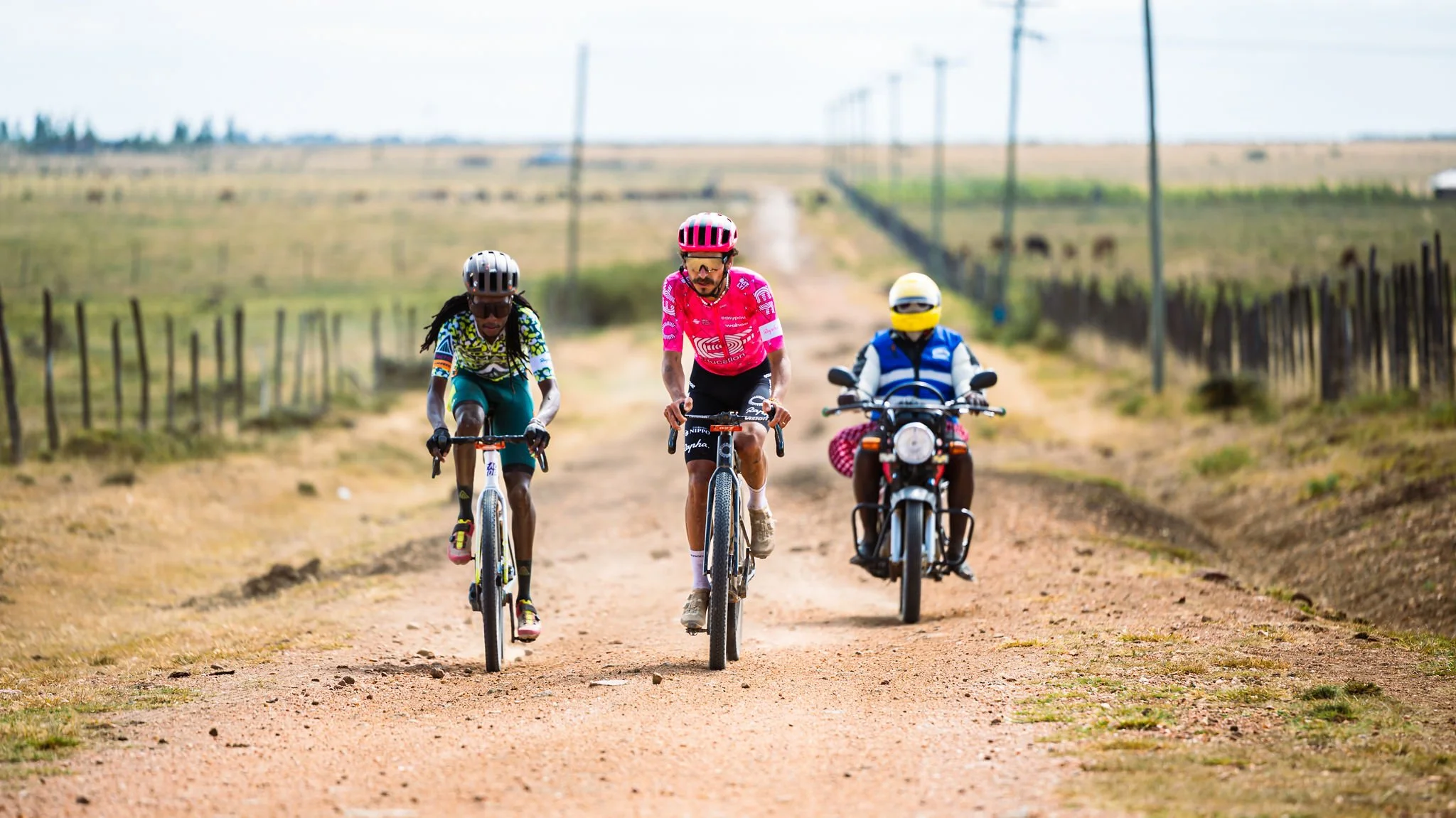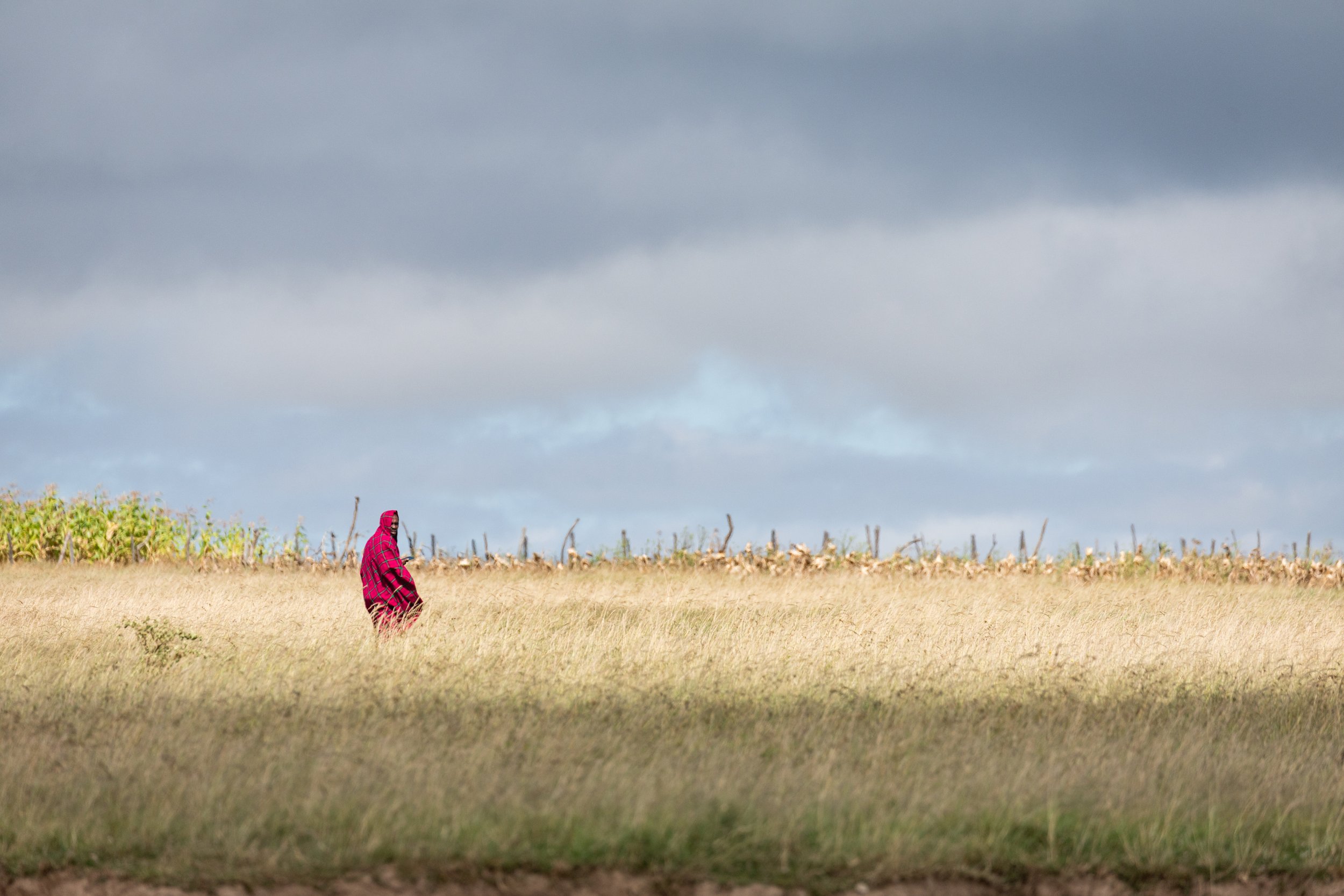Where do we ride?
Migration Gravel Race is excited to revisit the new course from 2025! Participants will have the option to choose between two courses. For those looking for an extra challenge, arrive before and race at the UCI Gravel Qualifier Safari Gravel Race. All MGR participants are offered a special registration price.
The Leopard Course is the traditional race course 650KM, 8000m+
The Zebra Course rides the same breathtaking course, but with less climbing and kilometers 475KM, 4000m+
The ZEBRA COURSE will be a non-competitive event and there will be no standings or prizes awarded.
Don’t be fooled, both courses will challenge you, wow you, and ultimately leave you a different person.

Stage 1 - Flat, Windy, Shamba Land
Leopard - 134km, 660m climbing
Zebra - 81km, 460m climbing
Description: This stage for both routes begins on the vast, flat plains, with 600 meters of climbing. Riders will weave through fences and follow cattle and wildlife tracks as they navigate through shamba areas. Wildlife sightings are common at the start and finish. As the day progresses, the famed headwinds on the open plains—nicknamed "the Dutch Mountains"—will intensify, especially for those on the longer Wildebeest route. The Zebra riders will take shorter paths but still face key sections of rugged type 4 to 5 gravel. Hydration and endurance are key, especially as the heat and winds pick up in the afternoon.

Stage 2 - Mountain stage
Leopard - 144km, 1690m climbing
Zebra - 111km, 970m climbing
Description: Formerly known as the Queen’s Stage, this 144 km route includes 1690 meters of climbing, challenging riders both physically and mentally. The new route features a longer approach to the iconic Mlima wa Shetani climb, skipping the detour to the Tanzanian border and returning directly to the wild camp. The stage begins with a flat section to warm up, followed by the tough climb up Mlima wa Shetani. Riders will then tackle the technical Lachy’s Delight single-track descent before navigating the winding trails of the Savage Garden in Loita Forest.
After exiting the forest, the route leads back to camp, passing through wildlife areas and Maasai villages, with the possibility of encountering elephants along the way. The final 70 km is a mix of climbs and technical descents, making hydration, nutrition, and preparation essential. The stage is a true endurance test, with unpredictable weather and difficult terrain, including thick black clay when it rains.

Stage 3: Queen Stage: Wide Savannah and Fast Gravel
Leopard - 158km, 2490m climbing
Zebra - 132km, 1880m climbing
Description: Stage 3 of the Migration Gravel Race covers 158 km with 2500 meters of climbing, offering a faster-paced ride compared to Stage 2. This section provides a smoother course, starting with hard-packed black gravel across vast open savannah, allowing riders to pick up speed. The route takes riders through wildlife-rich plains, where encounters with wildebeest, zebras, and gazelles are common. However, caution is required at bridge crossings, which are often at the base of fast descents and may have hidden dips or holes.
Despite the faster pace, the 1600 meters of climbing, especially in the afternoon heat, will still challenge riders. The wide-open terrain offers little shelter, making hydration and focus essential to completing the stage. Though a break from the more technical sections, this stage remains a demanding test.

Stage 4: The Final Push
Leopard - 181km, 1980m climbing
Zebra - 120km, 1260m climbing
Description: Stage 4 of the Migration Gravel Race spans 181 km with 1980 meters of climbing, serving as the grand finale of the race. Riders begin by tackling one last climb in the Loita Hills before descending toward the Mara plains. The stage features a mix of hard climbs and fast, flowing descents, testing both endurance and skill.
After the descent, riders cross the open plains, experiencing the savannah one final time before returning to the wild camp. With constant wildlife encounters and stunning scenery, this stage provides a fitting end to the race. Though less intense than earlier stages, the heat of the Mara and the distance will still challenge riders, requiring strong focus, stamina, hydration, and pacing to finish strong.
Mandatory Equipment
GPS Mapping Device (we recommend non-touch screens like the Wahoo Roam)
Tracking/timing device (to be provided as rental from MGR organization)
Capacity to carry 3 liters of water. Feel free to use extra bottle cages and/or camelbacks (temperatures can reach up to 30+ degrees Celsius).
Mobile phone with local SIM card or roaming capacity (there is 3G coverage for most of the race)
Helmet and gloves (gloves are really necessary)
Bike repair tools and spares (you are responsible for your own maintenance on the road)
Travel insurance
Waterproof rain jacket
Basic emergency kit with band-aids, paracetamol, gauze, etc.
Sleeping bag
Lion spray (joking)


